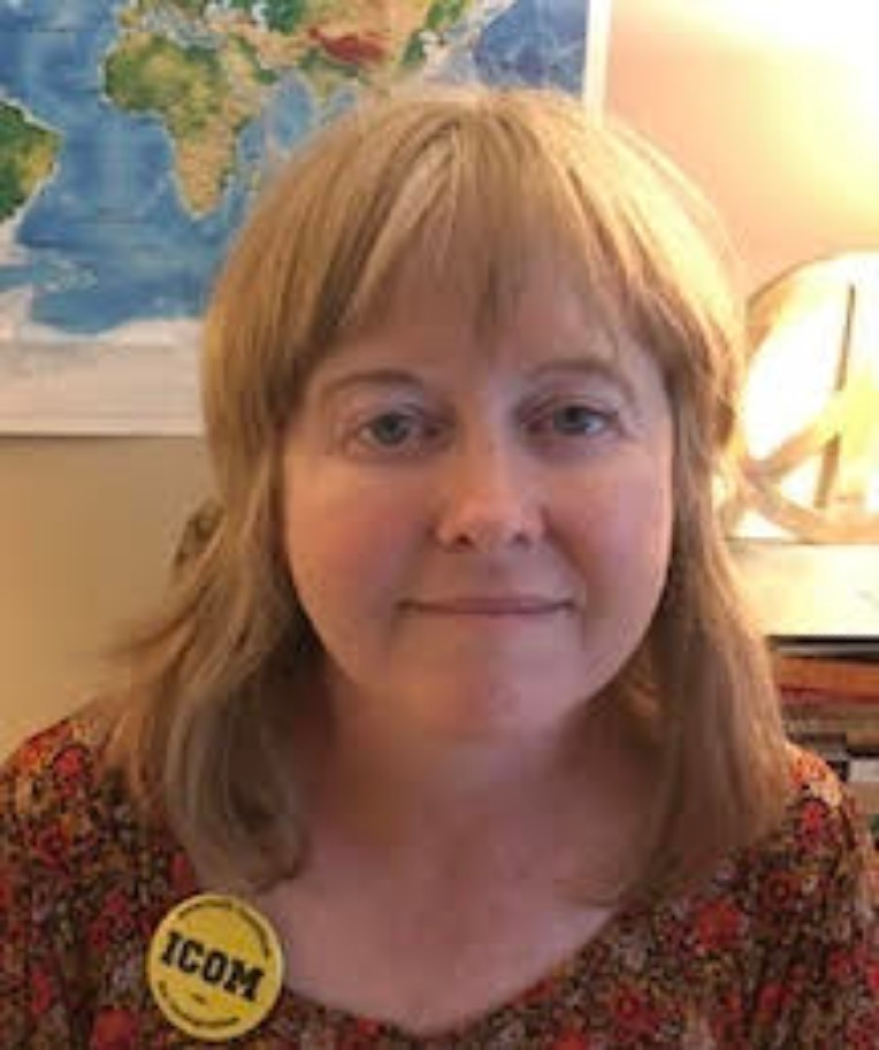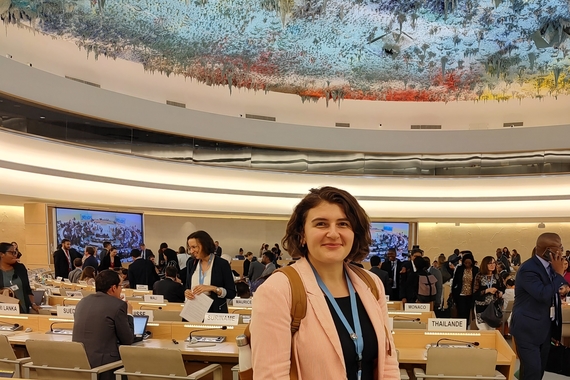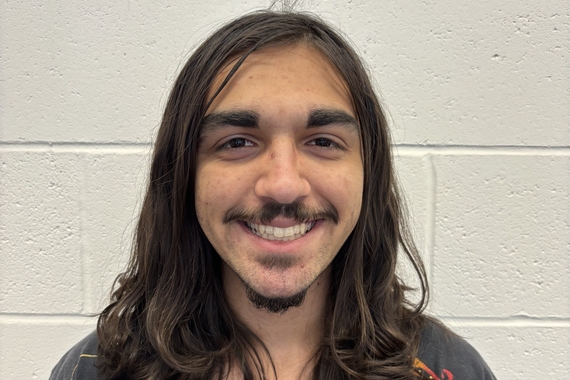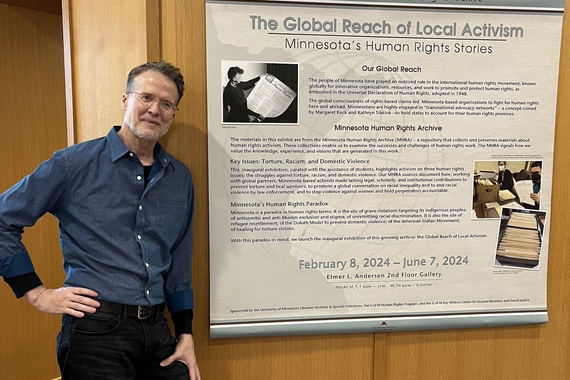MHR Student Supports Families Affected by Deportation
Stephanie Tice (MHR '21) is a second year Master of Human Rights student with a concentration in NGO leadership and management. Over the summer, Stephanie volunteered with the Minnesota Interfaith Coalition on Immigration where she was immersed in immigration advocacy by being able to connect with families impacted by deportation firsthand. Read our interview with Stephanie below to hear about her experience.
Human Rights Program (HRP): Please describe your summer internship or project and the work that you did during this time.
Stephanie Tice (ST): I volunteered in an immigrant advocacy nonprofit called the MN Interfaith Coalition on Immigration (ICOM), specifically in the area of AID (Accompanying Immigrants in Detention). The tasks I did in AID were multi-faceted. I did a lot of Spanish/English interpreting, and I helped connect families impacted by deportation with resources such as low cost medical care and legal counsel. We also put together an online fundraiser to help a family pay rent. I also helped the organization with secretarial tasks such as crafting an online newsletter, making flyers, sending out email invitations and updates to members, maintaining the website and facilitating Zoom meetings.
HRP: What kinds of projects have you been working on this summer? Does one in particular stand out as being of great value and/ or interest?
ST: Out of all the families I helped, there is one family that stands out in particular. Their husband/father, a well-respected man who had lived and worked in his community for decades, was facing deportation. We staged a big letter writing and calling campaign, leveraged the support of senators, state representatives and their city mayor, and held press conferences over Zoom. Over several weeks we tried every possible strategy we could think of, and yet we still lost. He was deported anyway. However, one unexpected benefit was that the producer of a podcast called “American Refugee” invited the family, and me as their interpreter, to tell their story to a national audience.
HRP: What are some of your key takeaways from this experience? What skills or personal growth have you gained through doing this work?
ST: This was a memorable and rewarding experience. I was immersed in immigration advocacy, and I heard the stories of immigrants firsthand. I learned about community organizing and building a nonprofit. My skills in written, verbal and bilingual communication across multiple platforms, as well as problem-solving, and collaborating in a team were definitely enhanced. An unexpected perk of collaborating in the podcast was that I also learned how to do voice recording.Out of all the families I helped, there is one family that stands out in particular. Their husband/father, a well-respected man who had lived and worked in his community for decades, was facing deportation. We staged a big letter writing and calling campaign, leveraged the support of senators, state representatives and their city mayor, and held press conferences over Zoom. Over several weeks we tried every possible strategy we could think of, and yet we still lost. He was deported anyway. However, one unexpected benefit was that the producer of a podcast called “American Refugee” invited the family, and me as their interpreter, to tell their story to a national audience.
HRP: How has this experience challenged you?
ST: I found it emotionally stressful to witness the trauma of families impacted by immigrant detention and deportation. I deeply about the well-being of others, yet I realized that in order to be effective I needed to make my own personal health and balance my #1 priority.
HRP: Was your work impacted by COVID-19?
ST: COVID-19 changed the landscape of our work without a doubt. First and foremost on the minds of all was the safety of those detained in jails where social distancing is not possible. As an organization, ICOM led protest actions calling for their release, and I did my best with the families to ensure that their concerns regarding the health and safety of their detained loved one were heard. Our contact with families switched from home visitation to communicating through texts and phone calls, and volunteer meetings and press conferences met through Zoom instead of in person.
HRP: How will this experience help or inform your career path or professional interests?
ST: This experience will help me on my career path because the tasks were broad enough as to be applicable in any setting, foreign or domestic. My ideal diplomatic or NGO job would involve bridging the communication gap between people of different cultural backgrounds. I definitely was able to do that in this experience.



